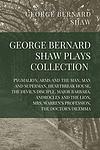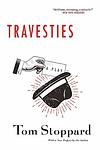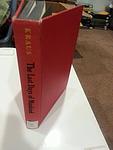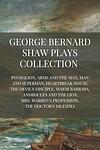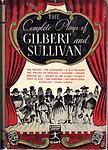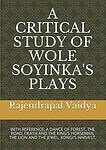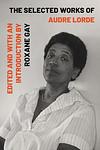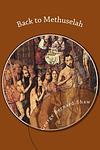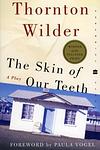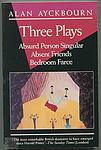The Greatest "Plays, Fiction, Satire" Books Since 1900
Click to learn how this list is calculated.
This list represents a comprehensive and trusted collection of the greatest books. Developed through a specialized algorithm, it brings together 300 'best of' book lists to form a definitive guide to the world's most acclaimed books. For those interested in how these books are chosen, additional details can be found on the rankings page.
Genres
Plays are a category of literature that consists of written works intended for performance on stage. They typically feature dialogue between characters and are structured into acts and scenes. Plays can be comedic, tragic, or a combination of both, and often explore themes such as love, power, and morality. They are meant to be performed by actors in front of an audience, and can be enjoyed both as written works and as live performances.
Satire is a genre of literature that uses humor, irony, and exaggeration to criticize and ridicule human vices, follies, and shortcomings. It is a form of social commentary that aims to expose the flaws and absurdities of society, politics, and culture. Satirical books often employ sarcasm, wit, and parody to challenge the status quo and provoke thought and reflection in readers. Satire can be both entertaining and thought-provoking, and it has been used throughout history as a powerful tool for social and political critique.
Countries
Date Range
Reading Statistics
Click the button below to see how many of these books you've read!
Download
If you're interested in downloading this list as a CSV file for use in a spreadsheet application, you can easily do so by clicking the button below. Please note that to ensure a manageable file size and faster download, the CSV will include details for only the first 500 books.
Download-
1. Waiting for Godot by Samuel Beckett
"Waiting for Godot" is a play that explores themes of existentialism, despair, and the human condition through the story of two characters, Vladimir and Estragon, who wait endlessly for a man named Godot, who never arrives. While they wait, they engage in a variety of discussions and encounter three other characters. The play is characterized by its minimalistic setting and lack of a traditional plot, leaving much to interpretation.
-
2. Rosencrantz & Guildenstern Are Dead by Tom Stoppard
The play is an absurdist, existential tragicomedy that follows two minor characters from Shakespeare's "Hamlet," Rosencrantz and Guildenstern, who are now the protagonists in their own story. As they stumble through philosophical debates and encounter a troupe of actors while trying to understand the nature of reality and their own existence, they find themselves increasingly out of their depth in a world where they have little control over their fate. The narrative weaves in and out of events from "Hamlet," offering a humorous and poignant perspective on free will, chance, and the search for meaning in a seemingly indifferent universe.
-
3. Selected Plays of George Bernard Shaw by George Bernard Shaw
This collection features selected plays by a renowned playwright, showcasing his wit, social criticism, and talent for character development. The plays touch on a wide range of themes, including class struggles, the complexities of love, the absurdity of war, and the pursuit of individual freedom. The author's sharp dialogue and satirical approach make these plays both entertaining and thought-provoking, reflecting his progressive views and his belief in the potential for societal change.
-
4. The Resistible Rise of Arturo Ui by Bertolt Brecht
"The Resistible Rise of Arturo Ui" is a satirical play that uses the rise of a fictional 1930s Chicago mobster, Arturo Ui, to parallel the rise of Adolf Hitler in Nazi Germany. The narrative is a critique of those who allowed Hitler to come to power, emphasizing that his rise was indeed resistible. The play explores themes of power, corruption, manipulation, and the dangers of complacency, showcasing the destructive potential of unchecked ambition and the failure of society to prevent the ascent of dangerous individuals.
-
5. Travesties by Tom Stoppard
The play is a comedic and intellectual romp through Zurich during World War I, where the lives of historical figures like the Dadaist Tristan Tzara, the novelist James Joyce, and the communist revolutionary Lenin intersect through the unreliable memories of British consular official Henry Carr. The narrative is a playful, non-linear exploration of art, politics, and the nature of memory, blending slapstick humor with sharp wit and literary allusions. The work challenges the audience to consider the role of the artist in society and the impact of political upheaval on cultural expression, all while questioning the reliability of history and the very nature of truth itself.
-
6. Bohemian Lights by Ramón del Valle-Inclán
"Bohemian Lights" is a novel set in early 20th century Madrid, Spain, featuring a group of bohemian artists and intellectuals as they navigate poverty, passion, and the pursuit of their crafts. The narrative captures their struggles and triumphs, the vibrant and decadent world they inhabit, and their unyielding commitment to their artistic ideals. The novel offers a vivid portrayal of bohemian life, with its blend of joy, despair, and relentless creative energy.
-
7. The Last Days of Mankind by Karl Kraus
"The Last Days of Mankind" is a satirical play that provides a critical commentary on the socio-political climate during World War I. The narrative presents a stark portrayal of the absurdity of war and the destructive forces of propaganda, bureaucracy, and nationalism. The author uses a variety of literary techniques, including parody, satire, and direct quotes from contemporary sources, to highlight the folly and tragedy of war. The play is known for its unique style, rich language, and its profound critique of society and culture during a time of great upheaval and conflict.
-
8. Major Barbara by George Bernard Shaw
The play explores the complex dynamics of social responsibility, morality, and religion through the lens of an idealistic young woman who works at the Salvation Army to help the poor, and her father, a wealthy munitions manufacturer. The conflict between their worldviews comes to a head as they debate the ethics of wealth and charity, with the father arguing that his business, which provides employment and security, is a greater force for good than charity work that merely alleviates the symptoms of poverty. The daughter's struggle with reconciling her moral convictions with the practicalities of the world leads to a profound examination of the true meaning of goodness and the source of societal change.
-
9. Accidental Death Of An Anarchist by Dario Fo
In this satirical farce, an eccentric and quick-witted man, referred to as the Maniac, infiltrates a police station where an anarchist railway worker's death is being investigated. The authorities claim the anarchist died by suicide, having jumped out of a window during an interrogation. However, the Maniac cleverly impersonates various officials, manipulates the policemen, and exposes the absurdities and contradictions in their stories, suggesting that the anarchist's death was not an accident but a cover-up of police brutality. The play uses sharp humor and slapstick to critique corruption and the misuse of power within the establishment, ultimately questioning the integrity of the police and the justice system.
-
10. Heartbreak House by George Bernard Shaw
Set against the backdrop of pre-World War I Britain, the play unfolds in the eccentric household of Captain Shotover, an old sea captain turned inventor. The narrative explores the lives and loves of the inhabitants of the so-called "Heartbreak House," who represent a microcosm of British society at the time. As they engage in witty banter and romantic entanglements, the characters remain blissfully unaware of the looming external threats that will soon engulf Europe. The play serves as a social critique, highlighting the idle, ineffective intellectualism and lack of moral direction among the British cultural elite, which Shaw saw as contributing to the country's decline and the catastrophic war on the horizon.
-
11. Complete Plays Of Gilbert And Sullivan by W. S. Gilbert
This collection brings together the witty and whimsical operatic works that emerged from the celebrated collaboration between a librettist and a composer, which captivated Victorian England and continue to delight audiences today. The book contains the complete texts of their satirical and comic operas, known for their clever wordplay, memorable melodies, and incisive social commentary. From tales of love aboard a British ship to the topsy-turvy world of a land where flirting is a capital offense, these plays skewer the foibles of society, politics, and culture, all while entertaining with their unique blend of humor and song.
-
12. The Threepenny Opera by Bertolt Brecht
Set in Victorian London, the narrative revolves around a cunning antihero who leads a group of beggars and is involved in various criminal activities. He marries the daughter of the king of the beggars, only to be betrayed by his new wife and a former lover, which leads to his arrest. As he faces execution, a deus ex machina twist saves him at the last moment, allowing him to return to his life of crime. The work is a biting satire of capitalist society, showcasing the corruption and moral ambiguity that pervade all levels of society, from the lowly beggar to the esteemed official, all underscored by memorable music that adds a layer of irony to the darkly comedic plot.
-
13. A Dance Of The Forest by Wole Soyinka
The book is a complex play that delves into the themes of identity, history, and the cyclical nature of human folly. It is set in an African village where the community is preparing for a festival to honor the return of their dead ancestors. As the living interact with the spirits of the past, the play reveals the characters' personal and political failings, reflecting on the post-colonial experience of African nations. Through a blend of myth, ritual, and satire, the narrative challenges the characters—and by extension, the audience—to confront their own complicity in societal issues, questioning the possibility of true progress and self-understanding.
-
14. Selected Works by Alfred Jarry
"Selected Works" by Alfred Jarry is a compilation of the most significant writings from a French author known for his pioneering work in the Absurdist and Surrealist movements. The collection showcases a range of Jarry's literary output, including plays, essays, and novels, with his most famous character, Père Ubu, often taking center stage. Jarry's work is characterized by its satirical edge, inventive language, and the subversion of traditional literary forms. His influence extends beyond literature into the realms of theatre and the visual arts, where his ideas have continued to resonate with avant-garde movements throughout the 20th century and beyond.
-
15. Back To Methuselah by George Bernard Shaw
"Back to Methuselah" is a collection of five plays that span from the Garden of Eden to the distant future, exploring themes of longevity, evolution, and human development. The work presents a philosophical examination of the human condition, with characters that live for centuries, allowing the author to critique the social and political norms of different eras. The central idea is that humans must willfully evolve to achieve longer lifespans, greater wisdom, and a more profound understanding of their potential. Through a blend of comedy, drama, and speculative thought, the plays challenge readers to consider the possibilities of human progress and the necessity of embracing change for survival.
-
16. The Complete Plays by Joe Orton
"The Complete Plays" is a collection of darkly humorous and satirical works by a renowned 20th-century playwright, known for his subversive take on social norms and institutions. The plays within this anthology challenge the boundaries of conventional theater, blending elements of farce and black comedy to critique the hypocrisies of society. The characters often find themselves in absurd and scandalous situations, reflecting the playwright's interest in the themes of sexuality, authority, and the fluidity of identity. With a sharp wit and a flair for dialogue, the plays remain influential, highlighting the enduring power of satire in the dramatic arts.
-
17. One Man, Two Guvnors by Richard Bean
Set in 1960s Brighton, the play is a hilarious farce that follows the bumbling and perpetually hungry Francis Henshall, who becomes separately employed by two men – Roscoe Crabbe, a local gangster, and Stanley Stubbers, an upper-class criminal. Unbeknownst to Francis, Roscoe is actually Roscoe's sister Rachel in disguise, her twin brother having been killed by her boyfriend, who is none other than Stanley Stubbers. As Francis tries to keep each of his guvnors unaware of the other, he becomes entangled in a web of deception, love triangles, and mistaken identities, leading to a series of comedic mishaps and slapstick humor as he struggles to satisfy his insatiable appetite and keep his dual employment a secret.
-
18. The Skin Of Our Teeth by Thornton Wilder
"The Skin of Our Teeth" is a groundbreaking play that chronicles the enduring struggles and resilience of the human race through the allegorical story of the Antrobus family. Set in various eras of human history, the family confronts repeated catastrophes, including the Ice Age, a great flood, and a devastating war. With a blend of tragic and comic elements, the play employs a metatheatrical style, breaking the fourth wall and commenting on the nature of human existence. Through the cyclical trials and triumphs of the Antrobus family, the narrative emphasizes the persistence and adaptability of humanity in the face of constant challenges, encapsulating the spirit of survival against all odds.
-
19. Absurd Person Singular by Alan Ayckbourn
This play is a dark comedy that unfolds over three successive Christmas Eves, focusing on three couples of varying social statuses linked by business and personal relationships. The narrative explores themes of social climbing, marital discord, and the often absurd nature of human behavior, as the characters' fortunes rise and fall. Each act takes place in a different couple's kitchen, serving as a backdrop to the shifting dynamics and power structures within the group. The humor is both situational and poignant, revealing the characters' desperate attempts to maintain appearances and control in the face of life's unpredictability and their own personal failures.
Reading Statistics
Click the button below to see how many of these books you've read!
Download
If you're interested in downloading this list as a CSV file for use in a spreadsheet application, you can easily do so by clicking the button below. Please note that to ensure a manageable file size and faster download, the CSV will include details for only the first 500 books.
Download

